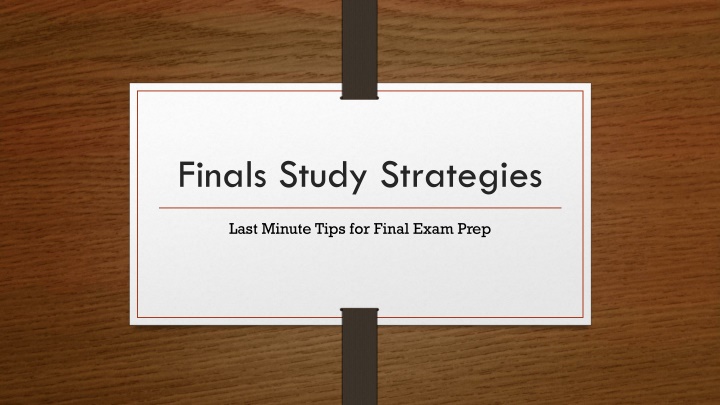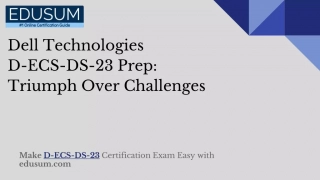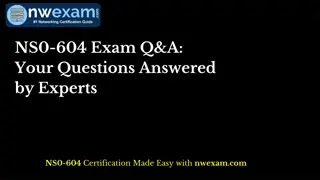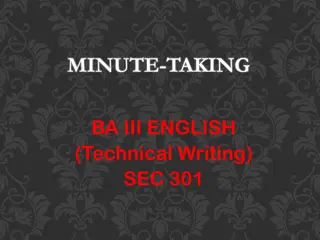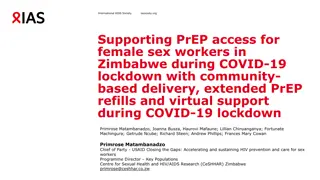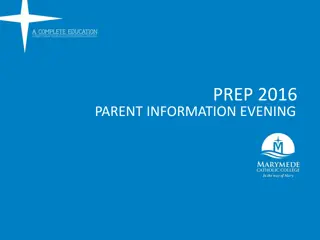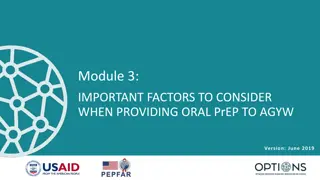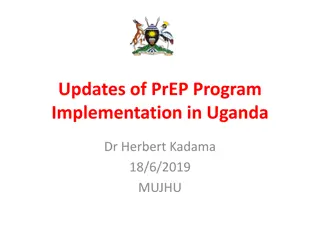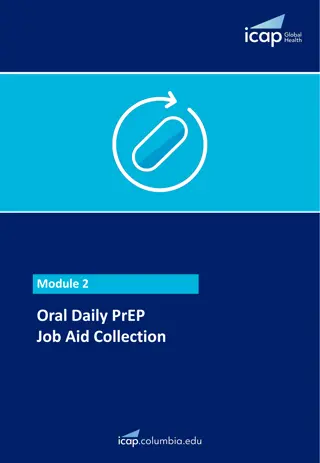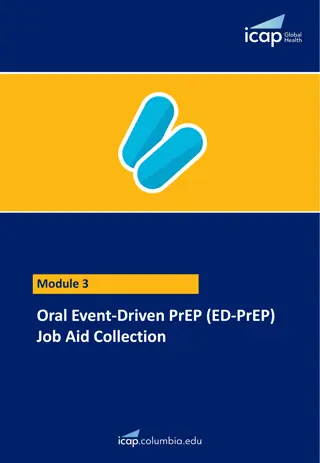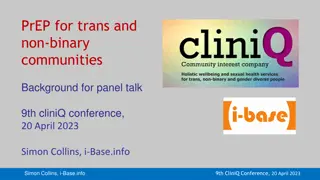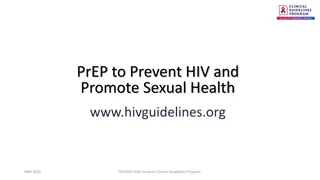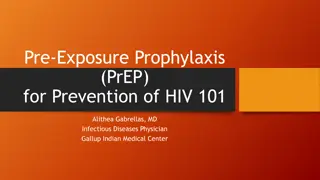Effective Last-Minute Study Strategies for Final Exam Prep
Prepare for final exams efficiently by knowing the exam format, content scope, and sources. Pay attention to professor hints, review old tests, and focus on key material. Engage in active studying methods like reciting, summarizing, and utilizing mnemonic devices to enhance retention and recall.
Download Presentation

Please find below an Image/Link to download the presentation.
The content on the website is provided AS IS for your information and personal use only. It may not be sold, licensed, or shared on other websites without obtaining consent from the author.If you encounter any issues during the download, it is possible that the publisher has removed the file from their server.
You are allowed to download the files provided on this website for personal or commercial use, subject to the condition that they are used lawfully. All files are the property of their respective owners.
The content on the website is provided AS IS for your information and personal use only. It may not be sold, licensed, or shared on other websites without obtaining consent from the author.
E N D
Presentation Transcript
Finals Study Strategies Last Minute Tips for Final Exam Prep
PREPARING FOR TESTS BEFORE YOUR FINAL REVIEW Know what you need to know The type of exams (e.g., essays vs. multiple choice) The data of the exams The scope of the exams (e.g., Are you responsible for dates? Formulas? Derivations?) Where the exam material comes from (i.e., how much from each book and how much from the lectures)
PREPARING FOR TESTS BEFORE YOUR FINAL REVIEW Pay special attention to Things the professor says will be on the test Material that is not in the book Terms, diagrams, etc., that were put on the board Schedule intermediate reviews Recite from your lecture notes Take notes on text and recite from these notes (this prevents a marathon review and strengthens the memory trace)
Use Old Tests as Study Aids EXAMINE MIDTERMS & FINAL EXAMS FROM PREVIOUS SEMESTERS They may be on file at the library or at the department office Find someone who has taken the course and ask him/her about the teaching style Analyze the testing style (i.e., does he/she like creativity or memorization, main points or details) Use them as practice test questions USE YOUR EARLIER MIDTERMS & ANALYZE YOUR MISTAKES Did you misread the question? Did you fail to get something important into your notes? Note the comments Analyze the testing style
FINAL REVIEW BEFORE AN EXAM Review Memorize Study Together Focus On Quiz Yourself Take Care of Yourself
Review Take notes on test material if you haven't already (consider flash cards) Use your underlining as a guide and be very selective Recite from your lecture notes and text notes Make summary sheets of the most important material and any important unlearned material (or separate cards into piles of cards "to learn" and "learned") Recite from your summary sheets (or cards "to learn") Make "summary of summary" sheets of any material still unlearned (or continue to separate flash cards) Recite from these Make "summary of summary of summary" sheets (or separate flash cards further)
Memorize Lists To memorize lists on your summary sheets, use mnemonic acronyms (e.g. VISTA -Volunteers in Service to America) Mnemonic sentences (Every Good Boy Deserves Favor = E G B D F -- the lines on the Treble Staff in music) or Hormones of the anterior pituitary gland are growth hormone, ACTH, thyroid stimulating hormone, follicle stimulating hormone, luteinizing hormone, prolactin. (G A T F L P OR G A T F U P) ACRONYM = FAT PUG (sentence = People always forget to grow up)
Study Together Find one, two or three well-prepared students Have an organized agenda to compare perceptions of the main points and possible essay questions Don't get bogged down on minor points Don't take someone else's word on a point you're not sure about-- look it up later
Pay special attention to: Material from the early part of the course Confusing material Concepts and principles
Quiz Yourself Prepare main point outlines for anticipated questions (or even write out essays) Include a couple of specific details Write out possible questions Don't expect to be able to anticipate all the questions
Take Care of Yourself Get some sleep Eat something! (Eating healthy is better!) Nutritionist Appt: 620-235-4452 Exercise Deep breathing Visualize Success!
The Four Rs Read Recite Review Repetition
Reading the Text Read: pre-read the chapter Read to answer questions Answer questions in your own words Recite: talk to yourself Read questions, answers & notes out loud
Reading the Text Review: re-read your notes Frequent review = better retention & less study time Repetition: the 4th R
10 minutes of study 5 minutes 2-4 minutes of study of study - - - - - - - - - - - - - - - - - - - - - - - - - - - - - - - - - - - - - - - - - - - - - - - - - - - - - - - - - - - - - - - - - - - 100% Recall Day 1 Day 2 Day 7 Day 30 Short-Term Memory Long-Term Memory
If you have to cram If you only have one or two days before the exam and you haven't done much of the reading: BE INTELLIGENT ABOUT YOUR CRAMMING & GET SOME SLEEP
Cramming for Essay Tests Recite from and review your lecture notes Survey the readings Read the chapter summaries carefully Get a general idea of the main points of the reading Don't leave out whole chapters or major sections of the reading Take notes on the highlights of all your notes; take summary notes of the highlights of all your notes; recite from these summary notes
Cramming for Objective Tests Recite from and review your lecture notes Take summary notes and recite from them Learn new terms Read as much as you can
Questions? Finals Study Strategies Student Success Programs studentsuccess@pittstate.edu @psusuccess
